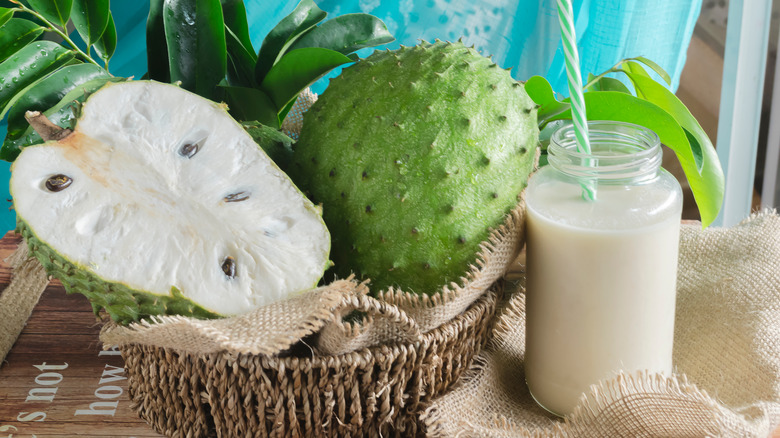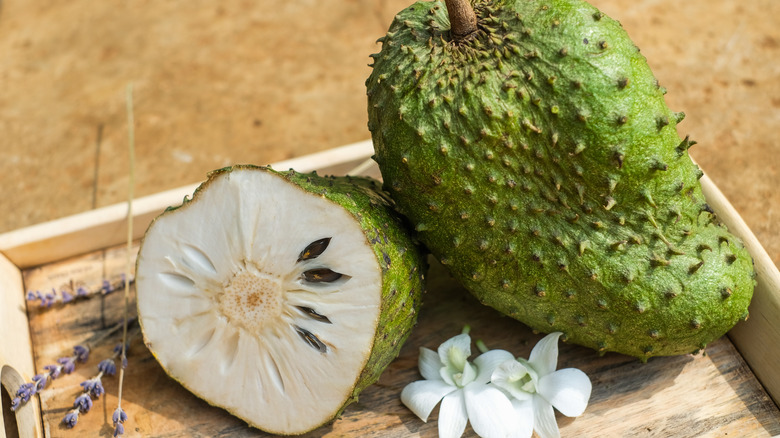Why Soursop Fruit Is So Expensive
Soursop is a versatile gem. Also known as graviola or guanábana, soursop is a tropical fruit that is prized for its unique flavor and numerous health benefits. Consumers around the globe love eating soursop by itself, as an element of hearty salads, blended into smoothies, freshly squeezed into juices, and even infused into indulgent treats like ice cream and cakes. It's also one of the most expensive fruits on the market, with prices often far exceeding those of other produce — and grocery items in general. To give you an idea of exactly how pricy we're talking, one pound of soursop will put you out roughly $40. A small, 3-pound box of soursop, therefore, costs around $120.
Why does soursop boast such a luxurious price tag? Because it's rare, delicate, and in demand.
Soursop possesses a pleasing texture and a simultaneously sweet and tangy taste, which is often described as a combination of strawberry, mango, and pineapple. Soursop is rich in antioxidants, vitamins, and minerals that can help with everything from reducing inflammation to boosting the immune system. There's even a suggestion that it can help to fight cancer, though more research needs to be done on this claim. As a result, epicures are willing to pay a premium for this nutritious, exorbitant fruit.
Soursop is a rare and delicate, though delicious, tropical fruit
Why is soursop so expensive? For one, soursop is not widely cultivated, making it a rare treasure. Its trees require a tropical climate to grow, so the fruit can only be grown in certain regions of the world. Though native to South America (Mexico, Brazil, Cuba, Peru, and Venezuela) it is cultivated in other parts of the world with a tropical climate. The fruit is tricky to grow, and soursop growers must have the expertise and resources needed to manage the crop effectively.
Another factor that contributes to the high cost of soursop is transportation. Since most soursop is grown in tropical regions such as South America, the Caribbean, and Southeast Asia, the fruit must be transported long distances to reach markets in other parts of the world. Because soursop is delicate and does not store particularly well, it needs to be transported quickly and carefully to ensure that it arrives at its destination in mint condition. The utmost TLC is required during shipping, which ultimately increases the price of the fruit.
And soursop is expensive because people want it! The crave-worthy flavor, velvety texture, versatility, and health benefits make it a highly sought-after delicacy. And this demand drives up the price, though most fruit lovers will tell you that it's worth it.

